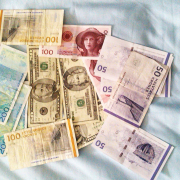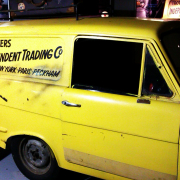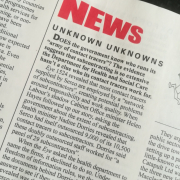Ayanda Capital Facemasks Contract – Were Basic Procurement Principles Forgotten?
It is a while since I wrote about the PPE (personal protective equipment) process in the UK government and health sector, but the stories continue to emerge and some are troubling to say the least.
The case of the contract with Ayanda Capital to supply face masks is one that continues to develop. Andrew Mills was the CEO of Virtualstock (a supply chain software firm) until 2018 but has acted as an unpaid government adviser since then. He secured production capacity for masks from a Chinese factory, but asked Ayanda Capital Ltd (an investment firm, registered in Mauritius but based in London) to “front” the proposal and then contract with government, as Ayanda had more experience in handling foreign payments.
The contract is worth at least £150 million, but now product has been delivered, fifty million masks can’t be used in hospitals because of safety fears. The masks use ear-loop fastenings rather than head loops, which means they may not fit tightly enough to be effective.
So did Ayanda fail to meet the specification? In normal cases, a product that does not meet the specification simply means that the supplier does not get paid. No, says the firm, it’s not our fault.
“The masks supplied went through a rigorous technical assurance programme and met all the requirements of the technical specifications which were made available online through the government’s portal,” they say. If true, that suggests the technical specification given to suppliers was simply incorrect.
But why is the government not challenging this? We can only draw two possible conclusions.
- Ayanda is correct. The specification was wrong and the error was the fault of the government procurement team.
- The government wants Ayanda to have the money even if they have failed in some way – for whatever reason, maybe to avoid more embarrassing debate – and simply wants to ignore the apparent specification problem.
The Good Law Project is challenging the government through the courts on this and some other questionable contracts that have been let during the crisis. Jo Maugham QC is leading the challenge, and on Twitter he has suggested, based on analysis of market prices, that Ayanda may have made over £50 million profit on this deal. That leads to another question. What measures did the procurement team take to ensure that the supplier was not going to make “excess profit” out of this deal?
Was there an open book provision, so the cost price from the factory was visible? Clawback provisions? Maybe even a cost-plus pricing formula? Or was the Ayanda price simply accepted without analysis, benchmarking, negotiation or questioning?
In the heat of the PPE crisis, we might forgive a certain amount of unusual procurement in terms of the selection of suppliers and perhaps less focus on track record and capability than we see in normal times, in order to simply get access to product.
But if the procurement team really did fail on the specification, that is very disappointing. “Getting the specification right” is literally Chapter 1 in my new book, (out in October) because it is so fundamental. Equally, a failure to negotiate or construct a robust commercial arrangement in order to allow a supplier to make a reasonable but not excessive profit is really pretty basic procurement work.
If failure on these two fronts has led to the taxpayer losing millions, and undeserving businesspeople making millions, then this truly will be a contender for the 2020 Bad Buying Trophy.









Excellent analysis. This situation feels wrong, so it’s great to have a procurement professional explain why in detail from such an expert standpoint.